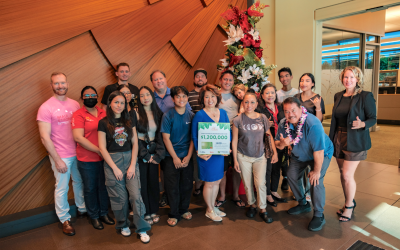June is National Safety Month, an opportune time to highlight the impact of sleep on job performance and safety. Sleep plays an important role in your physical and mental health. Working in the restaurant industry comes with a fun and fast-paced lifestyle, but with shifts that end late into the evening or starting bright and early, it can be difficult to sustain a healthy sleep pattern. Many shift workers experience issues such as sleep disturbances, excessive tiredness, and general fatigue. These can result in absenteeism, accidents, errors, and injuries.
Shift workers, especially night-shift workers, typically get only five to six hours of sleep, which is short of the seven to nine hours recommended by The Journal of Clinical Sleep Medicine. Between 10% and 20% of shift workers report falling asleep on the job, and workplace accidents related to a lack of alertness cost about $40 billion in the U.S. each year.
Here are some things you can do to improve your sleep and prevent sleep deprivation.
- Allow yourself to use your available sleep hours for sleeping. Cleaning the house and other tasks can wait. If your body is telling you it is tired, get off your feet and rest.
- Maintain as regular a schedule as possible to get your body used to resting at a certain time.
- Avoid caffeine close to the end of your shift so it doesn’t keep you awake later into the night.
- If it can be avoided, don’t work hard schedules multiple days in a row. To avoid burnout, space your days out or take easier shifts between the hard ones.
- Take some time for non-work-related activities to give your mind a break and help you relax.
- If necessary, nap before night shifts to improve your alertness.
- Limit your disturbances. Turn off your phone and use blackout blinds to help maintain a deep sleep.
If you are having trouble sleeping due to your work schedule and feel it may be impacting your job performance and/or safety, talk with your manager. If you continue to have trouble with your sleep patterns, we recommend contacting your primary care doctor to discuss options that may help. Do not start taking prescription or over-the-counter sleep aids, which may lead to medication dependence, without first discussing with your doctor.
 John E. Aoki, M.D., CHCQM, FABQAURP
John E. Aoki, M.D., CHCQM, FABQAURP

Chief Medical Officer
Brought to you by HMAA, where we’re passionate about your health. To find out more about HMAA’s health plans,
visit hmaa.com or contact our Customer Service Center.
For information about our menu of wellness services, please contact Naomi Azama at (808) 791-7607 or nazama@hmaa.com.




0 Comments